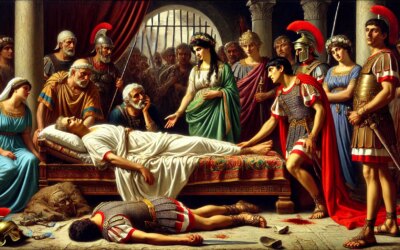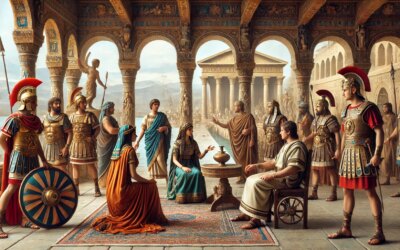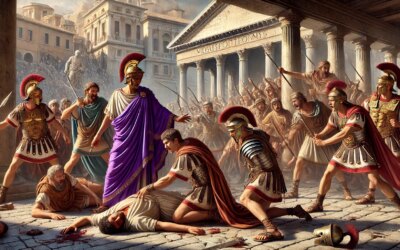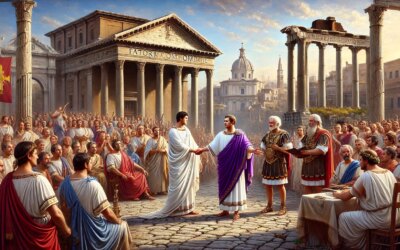Introduction: Rome’s Eastern Turn
By 64 BC, the Roman Republic had extended its reach from the Western Mediterranean deep into the Hellenistic East. This transformation was not merely a consequence of conquest but of careful political reorganization. At the heart of this strategy stood Gnaeus Pompeius Magnus—Pompey the Great—whose sweeping reforms in Asia Minor and the Levant brought long-term Roman order to previously fractious regions. His administration of the East solidified his status as one of Rome’s greatest statesmen—and deepened the crisis of power that would soon consume the Republic.
Pompey the Great: The Uncrowned King
Pompey was already a celebrated general by the 60s BC, having triumphed in Africa, Spain, and Italy. After securing a command against piracy in the Mediterranean with unprecedented powers, he turned eastward in 66 BC to conclude the protracted Third Mithridatic War against Mithridates VI of Pontus. Within three years, Pompey not only subdued Mithridates but brought the entire eastern Mediterranean under stable Roman control.
The Defeat of Mithridates and Tigranes
Pompey’s victories were swift and decisive. He defeated Mithridates in successive campaigns and forced Tigranes the Great of Armenia into submission, effectively ending major resistance to Roman authority in the East. These conquests added vast new territories to the Republic—but administering them was an even greater task than conquering them.
The Reorganization of the East
In 64 BC, Pompey undertook a bold political project: the comprehensive reorganization of Rome’s new eastern domains. He created new provinces—such as Bithynia-Pontus and Syria—and restructured older ones to ensure better revenue and local stability. Cities were granted autonomy or semi-autonomy based on loyalty and strategic value. Local rulers were retained where advantageous, forming a buffer zone between direct Roman control and frontier instability.
The Annexation of Syria
Among Pompey’s most consequential actions was the formal annexation of the Seleucid Kingdom of Syria. Once a major Hellenistic power, Syria had become a shell of its former self, wracked by civil war and invasion. Pompey dissolved the monarchy and established a Roman province, bringing the Near East more firmly into Rome’s orbit. This move placed Roman forces on the doorstep of the Parthian Empire and set the stage for centuries of rivalry.
Diplomacy and Patronage
Pompey’s rule in the East was not merely military—it was deeply diplomatic. He courted cities, granted charters, and built a network of client kings and allied cities. He established administrative clarity and financial systems that made tax collection more consistent and reduced corruption. Though acting under Roman authority, he operated with remarkable independence, enhancing his prestige and alienating rivals in Rome.
Return to Rome and Political Fallout
Pompey returned to Italy in 62 BC with unparalleled military prestige and no official post. He expected the Senate to ratify his eastern settlements and reward his service. Instead, political resistance, largely from the optimates, stalled his agenda. This failure to secure recognition helped push him into alliance with Julius Caesar and Crassus in the First Triumvirate, setting the Republic on a collision course with dictatorship.
Legacy of the Eastern Settlement
The structures Pompey established in 64 BC endured for centuries. His provincial models became templates for future governors, and his client states buffered Rome against external threats. Even as civil war later consumed the Republic, his eastern reforms remained intact, a testament to their efficacy. In reshaping the East, Pompey had not only extended Rome’s borders but embedded its systems in foreign lands.
Conclusion: Order from Conquest
Pompey’s 64 BC reorganization of the East marked a pivotal shift in Roman imperialism—from conquest to governance. By drawing lines, establishing provinces, and balancing diplomacy with dominance, he transformed the chaotic post-Hellenistic landscape into a Roman frontier. Though his political fortune would rise and fall, the roads he paved, cities he elevated, and systems he enforced endured—an emperor in all but name, laying the foundation for empire.






